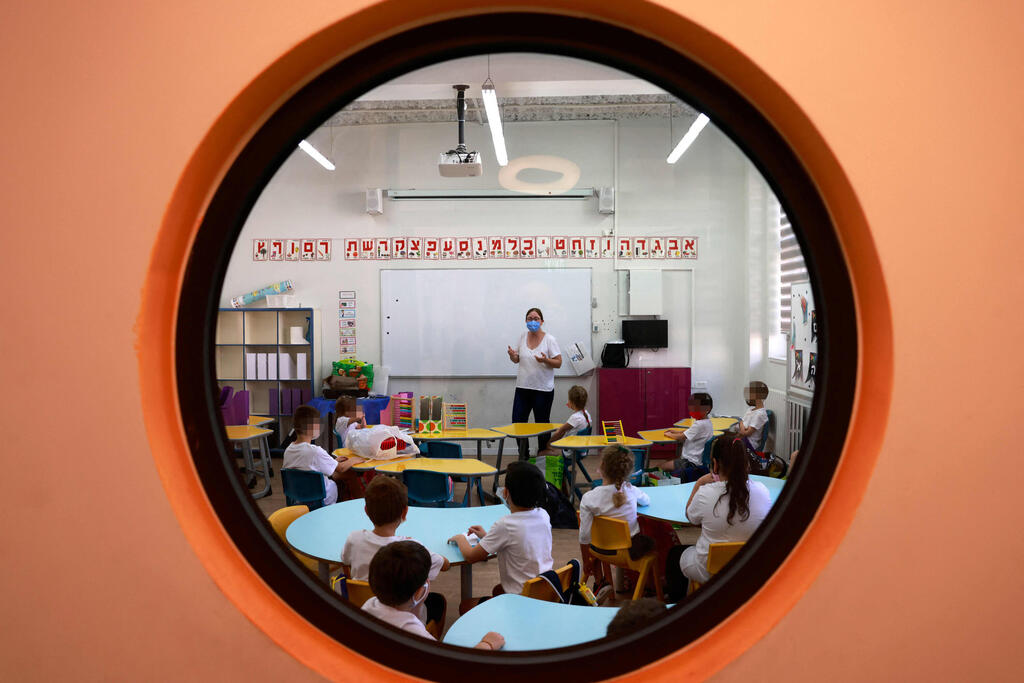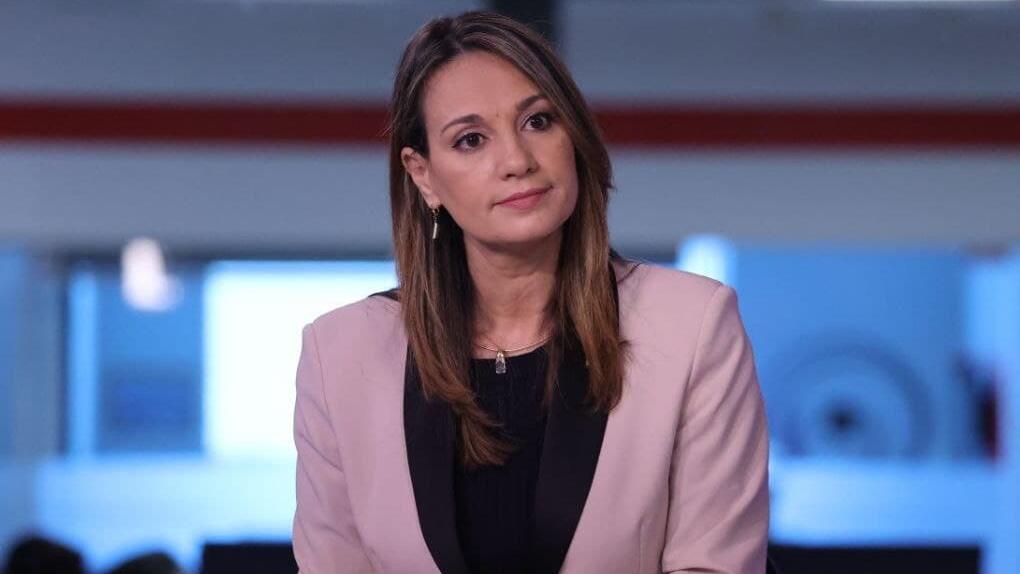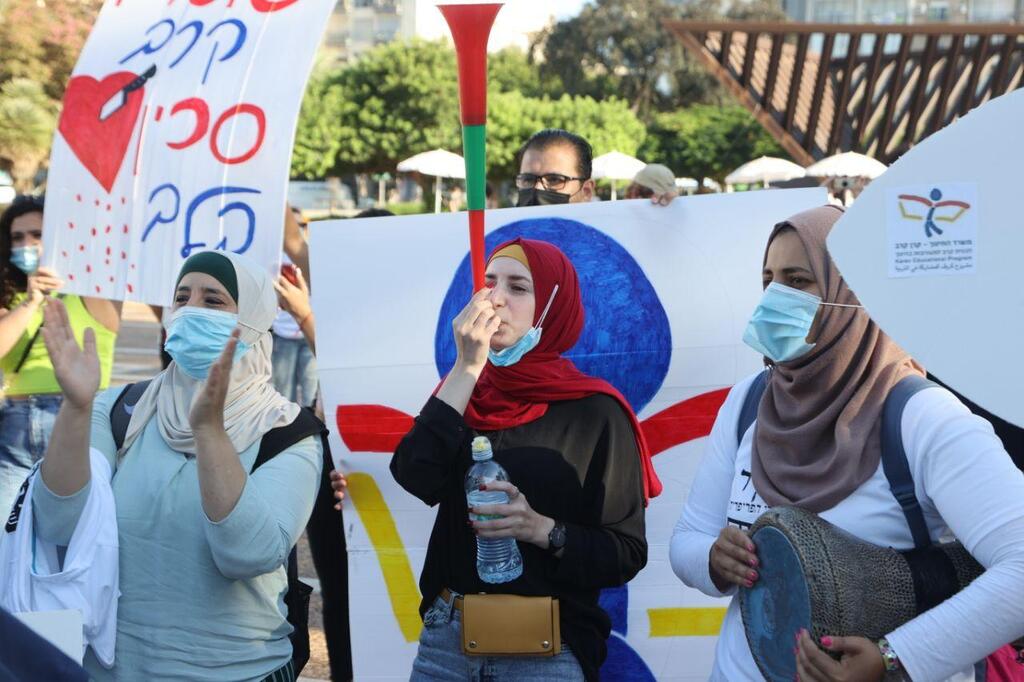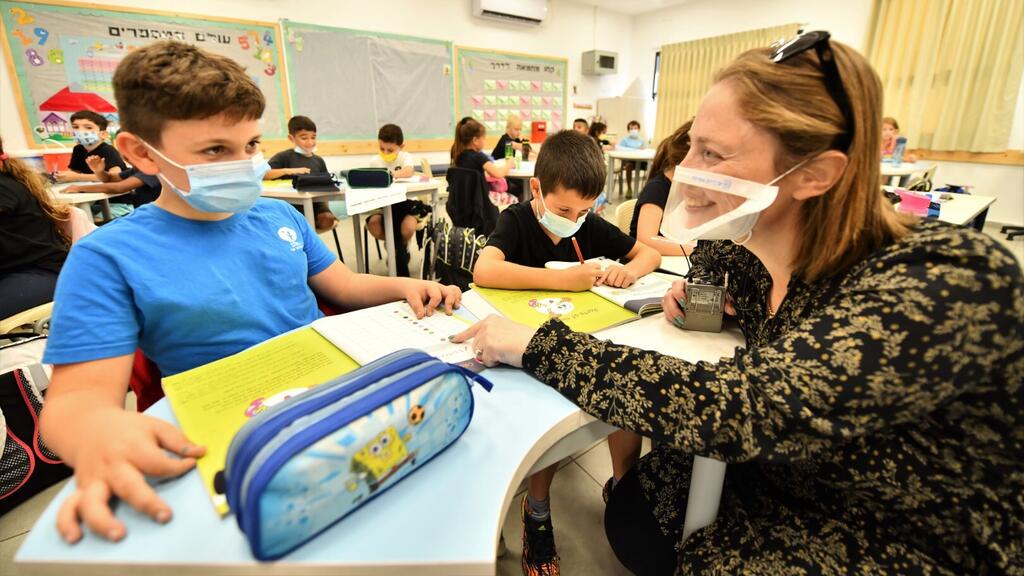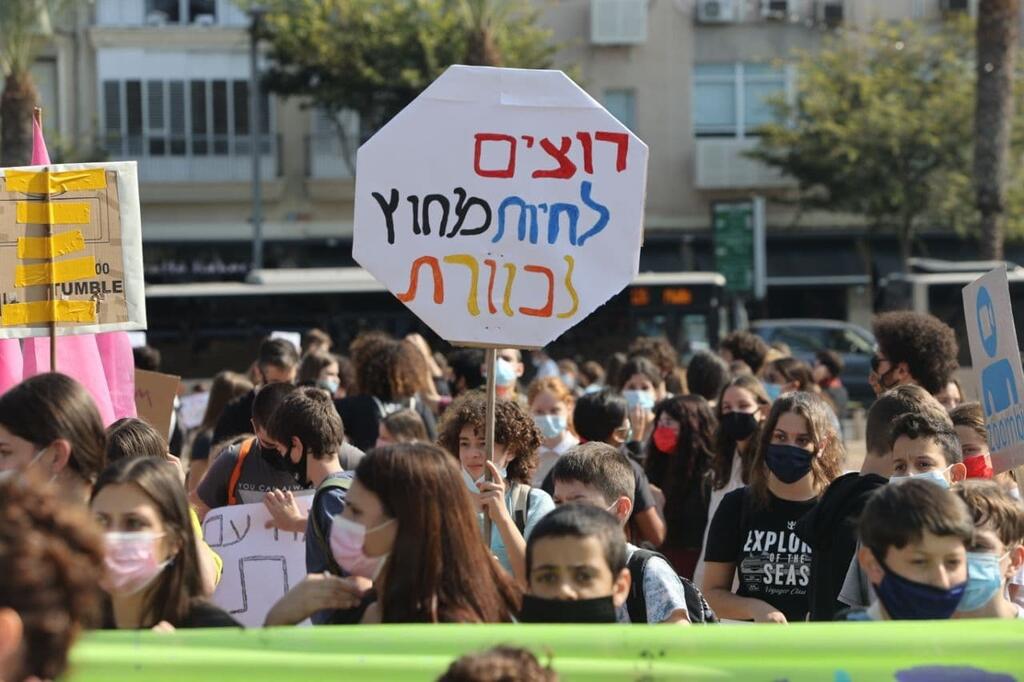Getting your Trinity Audio player ready...
When the COVID-19 pandemic arrived in Israel nearly two years ago, it almost immediately left its mark on every aspect of life in the tiny country.
For the Israeli education system, already lagging behind in many Organization for Economic Co-operation and Development, or OECD parameters, the crisis highlighted existing problems that are well known and have not been dealt with for decades.
“Before the pandemic, the education system was in a dire situation. The problems were all there, COVID-19 just increased their volume and intensified them,” Dr. Tammy Hoffman, a researcher at the Israel Democracy Institute, and its director for Education Policy, said.
At the onset of the crisis, there was hope that the pandemic presented the system with an opportunity for change. But, as time has passed and as Israel currently faces a massive wave of infections from the omicron variant, it is evident that this opportunity has been missed.
Though the education system shifted to distance learning for many months and was subject to frequent changes, the agility which Israelis are often known for was not evident in schools.
“The system has lost its flexibility and its expertise,” said Professor Yaacov Yablon, dean of the Faculty of Education at Bar-Ilan University.
Many underlying issues rose to the surface and new problems have arisen since the start of the pandemic.
Inequality and gaps among students
One of the stated goals of the Education Ministry is to give a “fair and equal chance in order to promote social mobility.”
Israeli society is heterogeneous with significant socioeconomic gaps. This inequality is especially evident in the education system. The lower the socioeconomic level, the lower the rates of performance and matriculation.
Israelis say education is a priority, but these words do not appear to be supported by action.
For example, the average expenditure per student in Israel is relatively low compared to other OECD countries, well below the OECD average.
In addition, teachers receive low wages, which keeps qualified professionals from entering the profession. At the same time, budgets are not large enough and blanket policies are inadequate to deal with diverse classrooms.
“We need a redefinition of national priorities, to give meaning to the saying that education is the most important,” said Hoffman. “Currently, the system perpetuates gaps. Students today do not have access to the same quality of education. This was true before the pandemic and is especially true throughout.”
The Education Ministry’s response to the pandemic has often ignored Israel’s disparate society with a wide range of differing needs. The plans have been centralized and uniform, ignoring the gaps including access to digital equipment.
“What is needed is a major change in the way of thought; different methods of distance learning need to be introduced and independent learning needs to be encouraged,” said Yablon. “This requires training, infrastructure and investment.”
The average fertility rate in Israel is three children, significantly higher than the OECD average. For ideal distance learning, multiple computers are needed, in addition to a stable and fast internet connection. In wealthier areas, where parents were able to afford private lessons and more computers with faster internet, the impact of school closures was minimized. But in areas with lower socioeconomic levels, families often did not have a backup plan for the shuttered schools.
In 1996, Israel set a goal of a computer for every child. Fast forward to 2020 and the onset of the pandemic: the goal was not reached.
“This shows different priorities, differing approaches to diverse populations, to the periphery and to Arabs. The result is the inferiority of certain groups and lack of equal opportunities,” said Hoffman.
7 View gallery
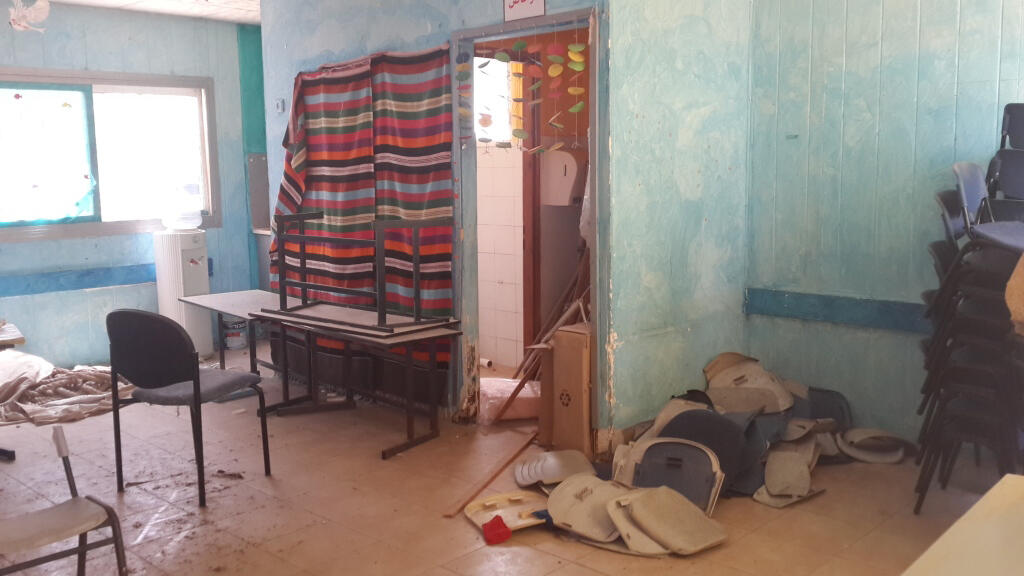

A disheveled classroom at a school in the Arab community of Jisr az-Zarqa
(Photo: Hassan Shaalan)
“Closing this gap doesn’t happen by just spending more money, but by understanding there are deep… issues…that need to be treated thoroughly,” she added.
There are students in Israel who do not have computers at home. In such cases, an internet connection is even more scarce. Bedouin children, who live in tents, for example, went for weeks without formal studies. Already underperforming, the lockdown set Bedouin children back even further. Already performing below average on matriculation rates, months without schooling set these students back even more.
While there is an extensive Hebrew-language educational portal for children run by the Ministry of Education, there is no such platform for Arab-speaking kids. Rather, there is Arabic content embedded in the Hebrew portal.
Now, at the beginning of 2022, with the onset of a new wave of COVID-19, little progress has been made.
Many ultra-Orthodox Jews also belong to the lower socioeconomic groups. The average ultra-Orthodox, or Haredi family has six children and many of them live in small and crowded apartments, without the ability to give each child adequate space for studying. The children are also forbidden from using the internet due to religious reasons, necessitating creative solutions for distance learning.
The pandemic did see a sharp rise in internet use in ultra-Orthodox households. As time passed and the lockdowns extended, necessity often overrode religious beliefs.
Centralization of education system
These complexities accentuate the need for Israel to take a less centralized approach to educating its young people.
7 View gallery
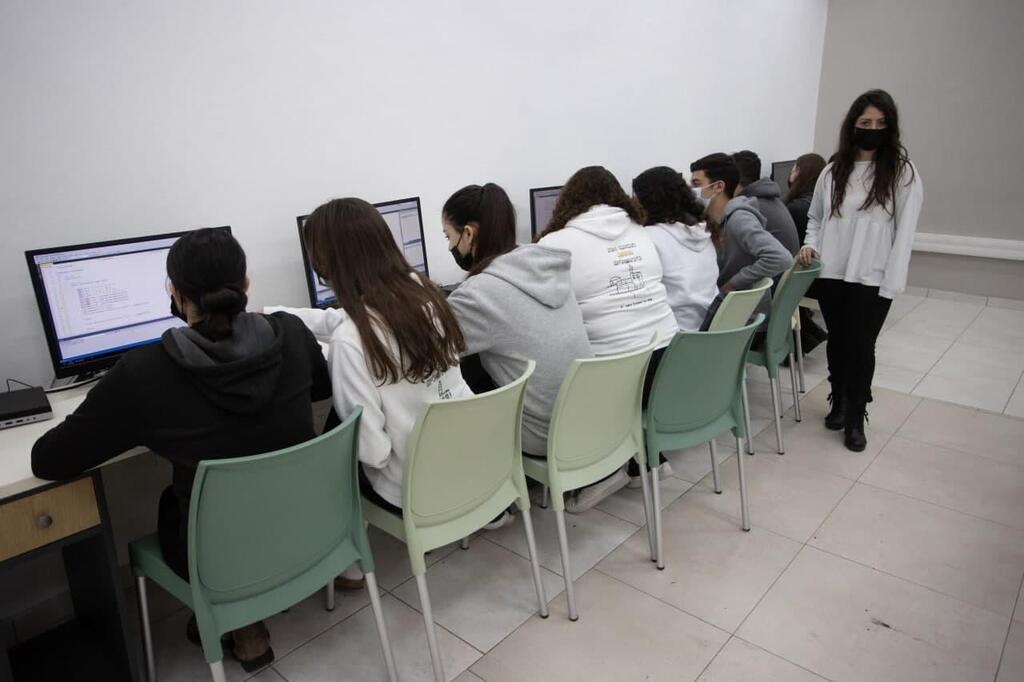

Students during compוter class at a High School in Beit She'an
(Photo: Gil Nachoshtan)
For years, the Education Ministry has given schools very little independence to decide on policies or curriculums. From the curriculum, to the size of classrooms and the books being used, the ministry dictates everything.
As the pandemic hit every area of the country differently, the response should have been tailor-made to each community’s schools, and principals should have been given the discretion to make decisions based on their demographics, access to computers and internet, and other factors, many experts say.
“Local initiatives did not get a chance,” said Yablon. “There is no room for the professional opinion of teachers or principals.”
Hoffman agrees. “Most of the decisions were made with the people on the ground either uninvolved completely or minimally involved,” she said.
There is little room for flexibility or creativity.
“Distance learning was not creative, it was copy-pasting what was done in the classroom,” Hoffman said.
There has been criticism by the public and from politicians that the ministry is resistant to change.
Often referred to as start-up nation, Israel’s education system is stuck in a rut and far from innovative. Certain curriculums have remained untouched for years, they say.
The increase in the education budget in recent years has not led to the improvement needed in the system, leading to the conclusion that money is not necessarily the problem, critics say. The coronavirus crisis highlighted the need for a localized approach that takes into account the strengths and weaknesses of each area. Those who champion the centralized approach often say it will help bridge the gaps, but the result has not borne this out.
The Education Ministry is the only body in Israel which licenses teachers and it is the biggest employer and trainer of teachers, which has had the effect of quelling creativity in teaching methods and approaches.
The fact that every decision about education is made in the ministry also makes it subject to political fluctuations. As with other aspects of the pandemic response, educational decisions also were marred by politics.
The psychological impact of distance learning
One of the greatest problems facing schools are the children who suffered a number of setbacks in the many weeks they sat, largely isolated, at home.
The affects differ according to the age of the children, but no one, it seems, was spared during the pandemic. Mental health professionals in the country are now swamped with patients, and mental health hospitals – which deal with extreme cases – also are reporting a lack of beds for new patients.
In addition to the academic setback for many children, there also was regression in the mental health and damage to the development of some children.
Meanwhile, children of working parents were often left alone for hours on end without supervision.
A survey conducted by the Ministry of Education among health care professionals, showed that many children sought treatment for feelings of loneliness and sadness. Anxiety and despair also increased. According to data from Clalit, Israel’s largest health maintenance organization, there was a significant increase in the start of the use of anti-depressants among minors during this period.
“Brains develop and mature through social context and interactions,” said Professor Nilly Mor, of the Department of Psychology and the School of Education at The Hebrew University of Jerusalem. “With distance learning, that whole side of learning through interaction is missing and these skills are more difficult to bridge than academic ones.”
When classrooms reopened, there were reports of increased violence and aggression on the part of students.
“Students came back with feelings of alienation,” Hoffman said, adding that existing issues that were difficult to deal with before the pandemic are now even more difficult to handle. “This leaves teachers at the forefront, without enough backing, tools or assistance,” she added.
The response of a struggling education system to the difficulties of children highlights yet again the complexity of the matter.
“Schools are not that well-equipped to deal with these issues,” said Mor, adding that “schools are overcrowded, understaffed and there are not always enough well-trained personnel to deal with children’s social and emotional difficulties. Israel is still struggling to pave its way in terms of inclusion and dealing with kids who have difficulties.”
Yablon says the current crisis could lead to change.
“However negative, the crisis is an opportunity that helps us understand the change that is needed,” he said.
Hoffman also prefers to look forward. “We don’t want to go back to how the system was before the pandemic, we want to change the system, the way it thinks, the way we teach, the way we learn. We wanted this before, the pandemic just proved how important this is,” she said.
The article is written by Keren Setton and reprinted with permission from The Media Line


